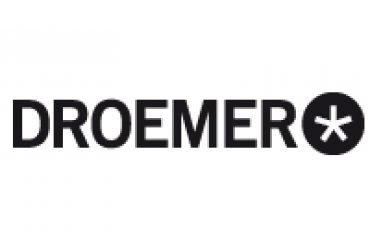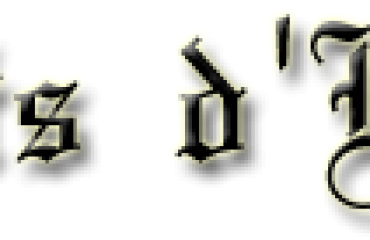This post is also available in:
 العربية (Arabic)
العربية (Arabic)
| Name of Publishing House | The new press |
|---|---|
| website | http://thenewpress.com/ |
| Communication | newpress@thenewpress.com |
About The New Press
The New Press publishes books that promote and enrich public discussion and understanding of the issues vital to our democracy and to a more equitable world. These books are made possible by the enthusiasm of our readers; the support of a committed group of donors, large and small; the collaboration of our many partners in the independent media and the not-for-profit sector; booksellers, who often hand-sell New Press books; librarians; and above all by our authors.
Since publishing its first book in 1992, The New Press has been widely hailed as a leading trade publisher. Booksellers, educators, critics and readers have extensively praised the New Press’s books, and they have been the recipients of numerous awards. The Press itself has been featured in publications from the New York Times, The Nation, Education Week, and the Christian Science Monitor to The Guardian (UK), Toronto Globe and Mail (Canada), Le Monde (France), and many other international media.
Underlying The Press’s editorial program are three aims: to broaden the audience for serious intellectual work, especially by reaching out to audiences intellectually red-lined by commercial publishers; to bring out the work of traditionally underrepresented voices; and to address the problems of a society in transition, highlighting attempts at reform and innovation in a wide range of fields.
“What you are doing is stimulating, interesting, useful, and beautiful, very beautiful. Bravo!”
—ELIE WIESEL
“A powerful force in serious publishing.”
—STANLEY KATZ, PRESIDENT, AMERICAN COUNCIL OF LEARNED SOCIETIES
What does The New Press publish?
Editorially, The New Press focuses on number of key program areas, including: contemporary social issues, with an emphasis on race relations, women’s issues, immigration, human rights, labor and popular economics, and the media; education reform and alternative teaching materials; cultural criticism; art and art education; international literature; and law and legal studies. Across these disciplines, The Press has also taken a leading role in publishing a wide range of new work in African American, Asian American, Latino, gay and lesbian, and Native American studies, as well as work by and about other minority groups.
In all of these areas, The New Press has worked with cultural organizations, including historical societies, museums, archives, media watch groups, and educational associations to bring the most exciting work produced at a local level to a broad, national audience.
The New Press is very much an activist press; with the help of a dynamic group of editorial advisory committees, it seeks to identify areas in which new books and materials are most needed, and to commission books to fill those needs.
The Press has also experimented with innovative formats and designs, including book-and-audio sets, art portfolios, postcard books, posterbooks, and alternative textbooks.
“I and many others in the writing community welcome what the New Press is up to, both for its own sake and for the impacts on the good side that one hopes it will have on conventional commercial publishing.”
—JOHN HERSEY
How do New Press books reach readers?
The New Press’s books are distributed to bookstores nationwide by the Perseus Books Group. Each year The Press sells over $3 million worth of its books, and since its launch in 1992 has brought nearly 1,000 books into print. In all, The Press has sold hundreds of thousands of copies of books in its own editions, and many more in outside paperback, foreign, and bookclub editions. Many New Press titles are also sold as e-books, and its list of titles available as e-books continues to expand.
New Press books are reviewed throughout the major media and alternative press, and have garnered many “Notable Books of the Year” listings in the New York Times and elsewhere. The Press’s books have also won many awards, ranging from the George Wittenborn Memorial Award from the Art Libraries Society of America to the Lincoln Prize in Civil War History at Gettysburg College; from the International Center of Photography Infinity Award for Writing to the American Library Association James Madison Award. New Press books are also widely used in high school and college classrooms throughout the country.
Beyond publishing books, The New Press seeks to bring the ideas in them to new and diverse audiences. To this end, The Press operates an ambitious Outreach Program, which works with libraries, museums, radio and television stations, historical societies, theater groups, and a wide range of other arts and media organizations to generate public discussion and debate on the major issues confronting American society today.
“As one who has watched with dismay as conglomerate publishing chopped poetry lists, history lists, belles-lettres, and all risky, controversial publishing, I salute you for your courage.”
—ERICA JONG
“I admire your publishing house enormously you do important work!”
—TONY KUSHNER
How does The New Press work?
While The New Press is guided by its not-for-profit mission and not by the bottom line, it functions in many ways like a commercial trade publisher: it identifies new authors, generally pays standard advances and royalties, and distributes its books nationwide. The difference is that at The New Press, any profit earned on a particular title does not go to owners, but back into the production of other books. Indeed, many commercially successful authors—including Studs Terkel, Marguerite Duras, and John Leonard—have chosen to publish their books with The New Press to support the not-for-profit publishing principle. As a 501(c)(3) organization, The New Press uses donor support to publish important books whose commercial potential is much less assured.
“A wide range of foundations have recognized the need for the kind of broad non-profit publishing program The New Press has undertaken, and since its inception The Press has received support from nearly 40 private foundations. I have been following the progress of The New Press with pleasure and pride. In these days of declining publishing, it is good to know there are independent editors at work.”
—DORIS GRUMBACH
The New Press is affiliated with the Technical, Office, and Professional (TOP) Union, Local 2110 UAW, AFL-CIO.
This post is also available in:
 العربية (Arabic)
العربية (Arabic)

 English
English 


